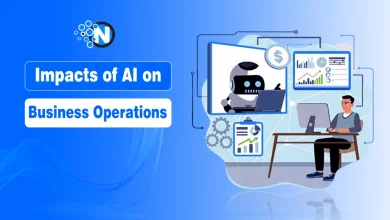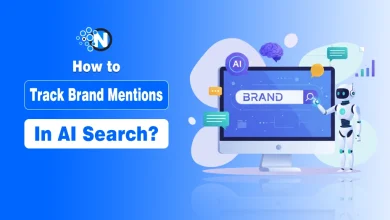AI in Sports: How Artificial Intelligence is Changing Game Analysis

The speed of the game has increased, there is more information available, and the most recent development, the brains behind it all, is AI. From the noise in football stadiums to the quiet of tennis courts, AI is omnipresent.
What previously took days for analysts to complete is now done in mere seconds. A new order emerges. Decisions are made. Coaches respond. Players respond. The audience?
They’re even louder than before. Something huge is underway; we are fundamentally muddled with just ones and zeros. But what role is AI exactly playing in sports?
In this blog post, I will explain the role of AI in sports and how AI is overturning traditional principles in sports.
Let’s start!
The Rise of AI in Sports
AI has evolved beyond just being an asset within the sports industry. It is now emerging as a catalyst for transformation. For example, in 2023, Manchester City, a prominent English Premier League soccer team, partnered with Cisco to create advanced training systems based on data analytics, which powers all aspects of Cisco’s business.
Also, teams like the NBA’s Golden State Warriors, have used machine learning for real-time play analysis. AI is also used to simulate race strategies in Formula 1. Traditional training camps have transformed into advanced laboratories, complete with virtual coaches equipped with AI, cutting-edge wearables, and devices. What was once considered ancient is now AI’s new field manual.
In this case, machine learning and AI are unveiling new possibilities for players and now also for bettors. These methods allow analysts to predict outcomes with astonishing accuracy. These predictions, derived from in-depth analysis of complex data calculations, transform cricket betting and other sports into a foolproof, risk-free betting strategy. Therefore, learning AI’s powerful algorithms in sport betting can significantly improve chances of winning.

How AI Transforms Game Analysis
The magic starts with video, sensors, and raw data. But what happens next is where the transformation kicks in. AI dissects every movement, every choice, every pixel. Here’s how it changes the game:
- Player Movement Tracking: Second Spectrum is an example of a company that employs computer vision to monitor each player’s and the ball’s movement in NBA games. They do this with a high level of precision, at 25 frames a second. In real-time, it produces heat maps, sprint patterns, and shows where the defense disengages.
- Injury Prediction: Catapult Sports is known for spending defined periods of time monitoring wearables in sports and using AI technology to track the collected biomechanical data. Catapult monitors elite football clubs and claims to reduce injuries by over 30%, noting fatigue markers long before they lead to injuries.
- Tactical Breakdown: With the advanced technology provided by Hudl and Stats Perform, teams can get instant updates on the team formations and the players’ movements during the match. These two AI technology companies provide instant feedback, which allows coaches to alter their strategies depending on the live action footage.
- Opponent Scouting: Using deep learning technology, teams can evaluate thousands of hours of opponents’ footage, pinpointing key habits and play styles. This tech automates the detection of the main tendencies, so teams don’t have to spend years analyzing their future opponents.
All this is done faster, smarter, and more accurately. And if you are interested in how these technologies affect real games, coaching decisions, and statistics, look at the community https://www.facebook.com/groups/381879567540316. There you can find no less exciting sports insights, fresh analytical reviews, and rare details that the average viewer will not notice. Also, there should be a bit of sports humor, live memes, and exclusive promo codes for bets so that the intelligence works for AI and the fan.
Predicting Outcomes with Artificial Intelligence
Can AI predict the winner? Yes, and quite chillingly accurately. For example, in tennis, IBM Watson analyzed over 100,000 matches to forecast outcomes with 73% accuracy. In football, Zone7’s platform processes over 50 million data points every week to predict injuries and performance. AI set-piece strategy optimization led to FC Midtjylland increasing their goal-scoring from corners by 40%.
But as with anything, it is not simply about the numbers. It is also timing, rhythm, and momentum. AI captures the pulse of the game. The Toronto Raptors modeled and adjusted their defensive strategy midway through the season, ranking second in the league in defensive efficiency. Prediction isn’t magic, it’s insight in real time. Now, every single pass, tackle, and sprint contains an undertone of a concealed signal. AI interprets all of it and responds.
Coaches and Players Embrace AI Tools
It’s not only backroom analysts anymore. Coaches are embracing AI technology with open arms. Real Madrid’s training center uses Kognia Tactical Analysis, which slices match footage to provide real-time tactical feedback. Bayern Munich’s fitness staff uses AI to optimize training loads based on GPS and biometric data. Everything is tailored for the individual.
Now we see athletes feeling the benefits directly as well. AI-based performance apps help Novak Djokovic analyze swing patterns and forecast fatigue. USWNT soccer players work out with AI-integrated wearables that recommend ideal rest periods. Trusting the numbers is easy for athletes, but they do so because they enhance their intuition rather than replace it. Coaches are not being sidelined due to AI Technology; it is simply transforming into a top-tier aid.
Challenges in Integrating AI
Yes, AI is powerful, but implementation isn’t always smooth. Sports teams still face hurdles. Here’s what they deal with:
- Data Overload: Coaches face the challenge of sifting through endless data to keep what matters and put aside the rest. Overloaded data can blur the lines between clarity and confusion.
- Tech Compatibility: New AI tools and databases are often rendered useless due to clubs’ old systems, which tend to clash with newer technology.
- Human Trust: Trust issues arise when new technology is integrated, especially when it overshadows human decision-making. For instance, when machines take on more responsibilities.
- Privacy Concerns: Handling sensitive biometric data demands extreme care to safeguard trust for participants. Ensuring safe management is crucial to uphold integrity and sustained confidence.
But these aren’t dead ends—they’re puzzles. And sports have never shied away from a challenge. AI’s place is earned one success story at a time. And every club that finds the rhythm between man and machine moves a step ahead.
Summing Up – The Future of Sports is Intelligent
AI in sports is exciting, real, and present. AI is converting instinct into insight and moments into models. Athletes are not just training; they are evolving. Teams are not just playing—they are outthinking their opponents. Every sport, every league, every country, it’s a global transformation. The scoreboard does not lie, and neither do the numbers. The issue is that AI does not have a question about changing sports. The issue is how much it can do? And the answer is only one: we’ll find out soon.




